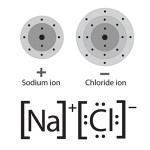Is Saltwater the Way to Go?
It seems like saltwater swimming pools are the latest buzz in outdoor living, but do they live up to all the hype? We can’t offer you chance to feel the water here on the blog, but we can give you the science and let you take it from there.
The Terminology
Most of us call it a saltwater pool, but technically, the pool is equipped with a Salt Chlorinator or a Chlorine Generator
How it Works
 Salt Chlorinators convert ordinary table salt to chlorine salt naturally. As the water flows through the electrolytic cell of the generator, electrolysis separates the saline into its basic components, sodium and chloride. Chlorine gas is produced by this process and goes to work in the cell chamber to oxidize bacteria and purify the pool water. Following this process most of the chloride and sodium re-bond and become natural salt again and is circulated through the pool.
Salt Chlorinators convert ordinary table salt to chlorine salt naturally. As the water flows through the electrolytic cell of the generator, electrolysis separates the saline into its basic components, sodium and chloride. Chlorine gas is produced by this process and goes to work in the cell chamber to oxidize bacteria and purify the pool water. Following this process most of the chloride and sodium re-bond and become natural salt again and is circulated through the pool.
The Result
 Super soft, silky pool water that doesn’t burn eyes or ruin bathing suits.
Super soft, silky pool water that doesn’t burn eyes or ruin bathing suits.
The Benefits
- Less spending on chemicals, less storing chemicals, and less dumping chemicals into to the environment.
- More swimming! Kids and swimmers with sensitivity to chlorine can spend more time in the pool.
Do you have a saltwater pool or have you been swimming in one lately? Let us know what you think!





